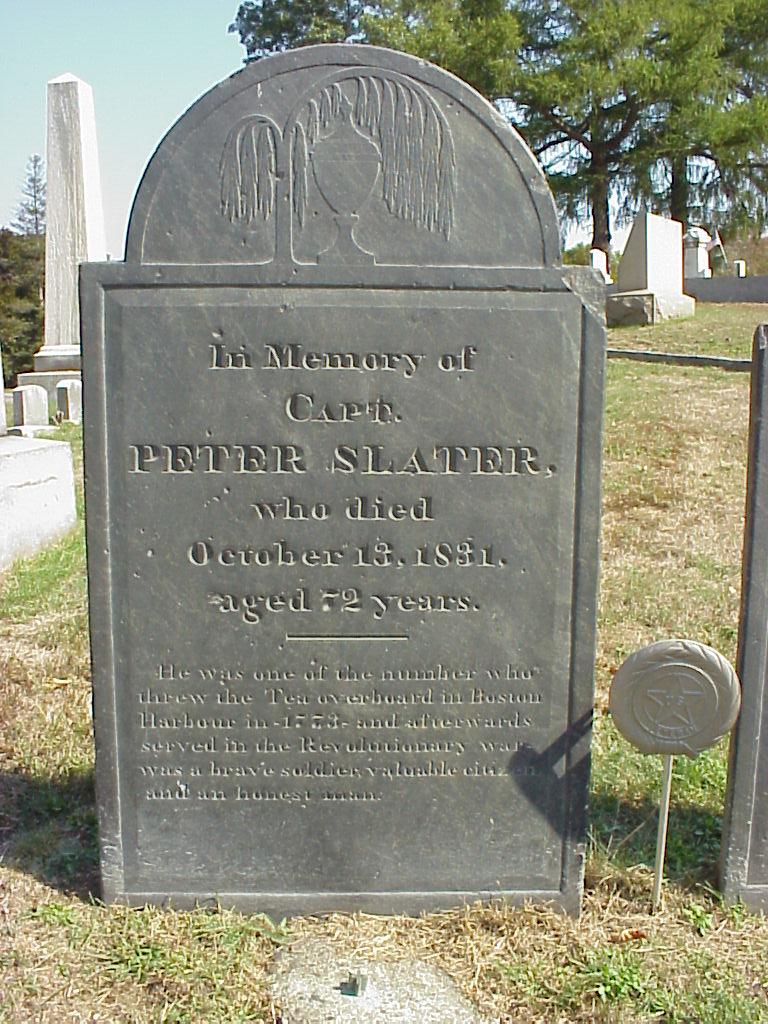This account appeared in the obituary for Peter Slater, who died in Worcester in 1831. It was first published in the Newburyport Herald on 18 October and Slater’s home-town newspaper, the Massachusetts Spy, on 19 October, and then reprinted with small changes in the November issue of the New-England Magazine:
Captain Slater was one of those persons who disguised themselves and threw the Tea overboard in Boston harbor, in December, 1773. He was then but a boy—an apprentice to a Rope maker, in Boston.Slater was born in 1760, thus thirteen years old at the time of the Tea Party and (contrary to the claim on his gravestone, above) seventy-one when he died. Though he was one of the youngest people who helped to destroy the tea, that wasn’t his first participation in political violence: he’d already been involved in the brawls that led up to the Boston Massacre.
He attended the meeting of the citizens of Boston at the Old South Church, in the afternoon, where the question was agitated relative to the landing of the tea, and some communications were made to [Francis] Rotch, the consignee of the cargoes. His master, apprehensive that something would take place relative to the tea then in the harbor, took Peter home and shut him up in his chamber.
He escaped from the window, went to a Blacksmith’s shop, where he found a man disguised, who told Peter to tie a handkerchief round his frock, to black his face with charcoal and to follow him—the company soon increased to about twenty persons.
Captain Slater went on board the Brig [the Beaver] with five others—two of them brought the tea upon deck—two broke open the chests and threw them overboard—and Captain Slater with one other, stood with poles to push them under water. Not a word was exchanged between the parties from the time they left Griffin’s wharf till the cargo was emptied into the harbor, and they returned to the wharf and dispersed. This is the account of that memorable event as given by Capt. Slater.
He afterwards served five years as a soldier in the Revolution. He was a firm patriot, a brave soldier, a valuable citizen and an honest man.
Like Joshua Wyeth and Benjamin Simpson, who spoke for attribution about their experiences at the Tea Party in the late 1820s, Slater had moved out of Boston, and thus away from the ethos that kept such stories private. And of course by the time his account made it into print, he was dead.

No comments:
Post a Comment